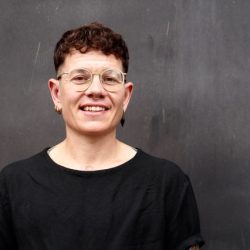B Camminga, University of the Witwatersrand (South Africa)
Research Project Title: Vulnerability Amplified: Assessing the Needs of LGBT Refugees in South Africa
Since the implementation of the Refugees Act 130 of 1998, which recognises persecution based on sexual orientation and/or gender identity as grounds for asylum, there has been a steady number of lesbian, gay, bisexual, transgender and intersex (LGBTI+) people seeking protection in South Africa. Recent years have seen increasing attention afforded to these individuals, as reflected in the small but growing number of articles, books and reports written about them. However, this work is almost entirely qualitative. Such research is critical, but it only tells part of the story. The absence of reliable quantitative data makes it difficult to gauge the size of the LGBTI+ migrant and asylum-seeking community or the extent to which specific issues affect it. In particular, it makes it difficult – if not impossible – to hold the Department of Home Affairs, the police and other state entities to account. When reports emerge of LGBTI+ migrants and asylum seekers being mistreated, the government can dismiss these incidents as isolated or anomalous. Indeed, it is easy to downplay the need for more stringent oversight and accountability mechanisms when there is a lack of hard figures. It was a desire to address this knowledge gap that inspired the Vulnerability Amplified project. Its aim was to collect baseline data that could augment existing research, as well as guide and support future advocacy interventions. This was achieved through three anonymous surveys administered via the WhatsApp messaging platform. As well as capturing basic demographic information, the surveys posed simple questions about participants’ gender, sexuality, documentation status, reason for migrating and experiences of harassment and/or violence. The surveys were circulated through established community networks, which allowed for data to be sourced from people who might otherwise be unable or unwilling to participate in research. The final report analyses data from 381 respondents, primarily based in Johannesburg, Cape Town and Tshwane but also from other parts of the country. To the best of our knowledge, it is the first time that qualitative data on this population has been made available. We hope the baseline data presented here will inform service delivery, facilitate movement-building, support needs analysis and assist with advocacy and fundraising efforts.
